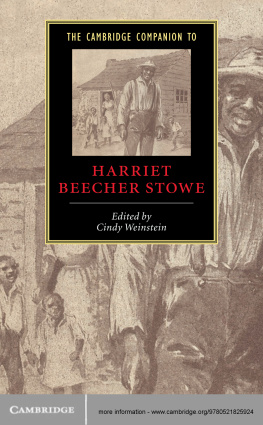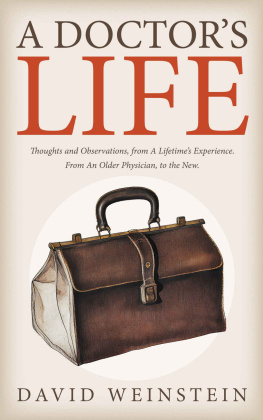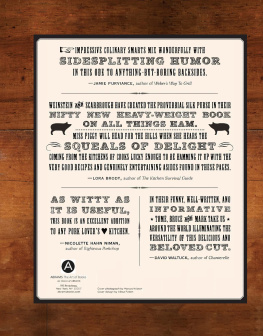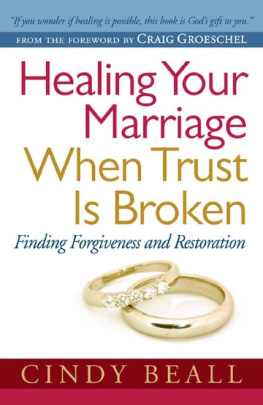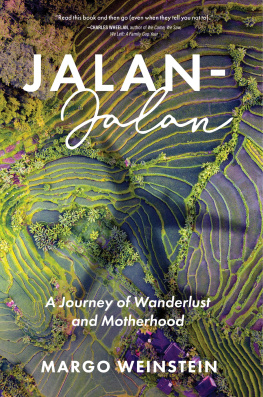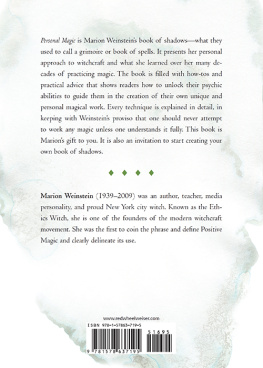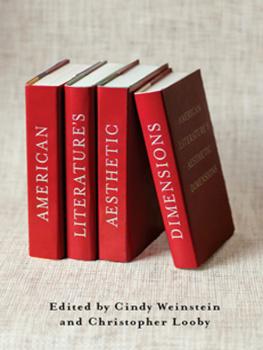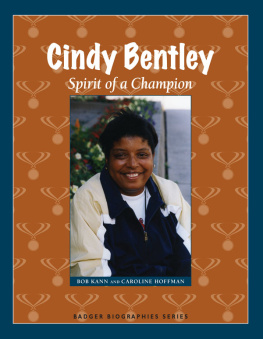Cindy Weinstein - Finding the Right Words
Here you can read online Cindy Weinstein - Finding the Right Words full text of the book (entire story) in english for free. Download pdf and epub, get meaning, cover and reviews about this ebook. year: 2021, publisher: Johns Hopkins University Press, genre: Home and family. Description of the work, (preface) as well as reviews are available. Best literature library LitArk.com created for fans of good reading and offers a wide selection of genres:
Romance novel
Science fiction
Adventure
Detective
Science
History
Home and family
Prose
Art
Politics
Computer
Non-fiction
Religion
Business
Children
Humor
Choose a favorite category and find really read worthwhile books. Enjoy immersion in the world of imagination, feel the emotions of the characters or learn something new for yourself, make an fascinating discovery.

- Book:Finding the Right Words
- Author:
- Publisher:Johns Hopkins University Press
- Genre:
- Year:2021
- Rating:5 / 5
- Favourites:Add to favourites
- Your mark:
- 100
- 1
- 2
- 3
- 4
- 5
Finding the Right Words: summary, description and annotation
We offer to read an annotation, description, summary or preface (depends on what the author of the book "Finding the Right Words" wrote himself). If you haven't found the necessary information about the book — write in the comments, we will try to find it.
Finding the Right Words — read online for free the complete book (whole text) full work
Below is the text of the book, divided by pages. System saving the place of the last page read, allows you to conveniently read the book "Finding the Right Words" online for free, without having to search again every time where you left off. Put a bookmark, and you can go to the page where you finished reading at any time.
Font size:
Interval:
Bookmark:
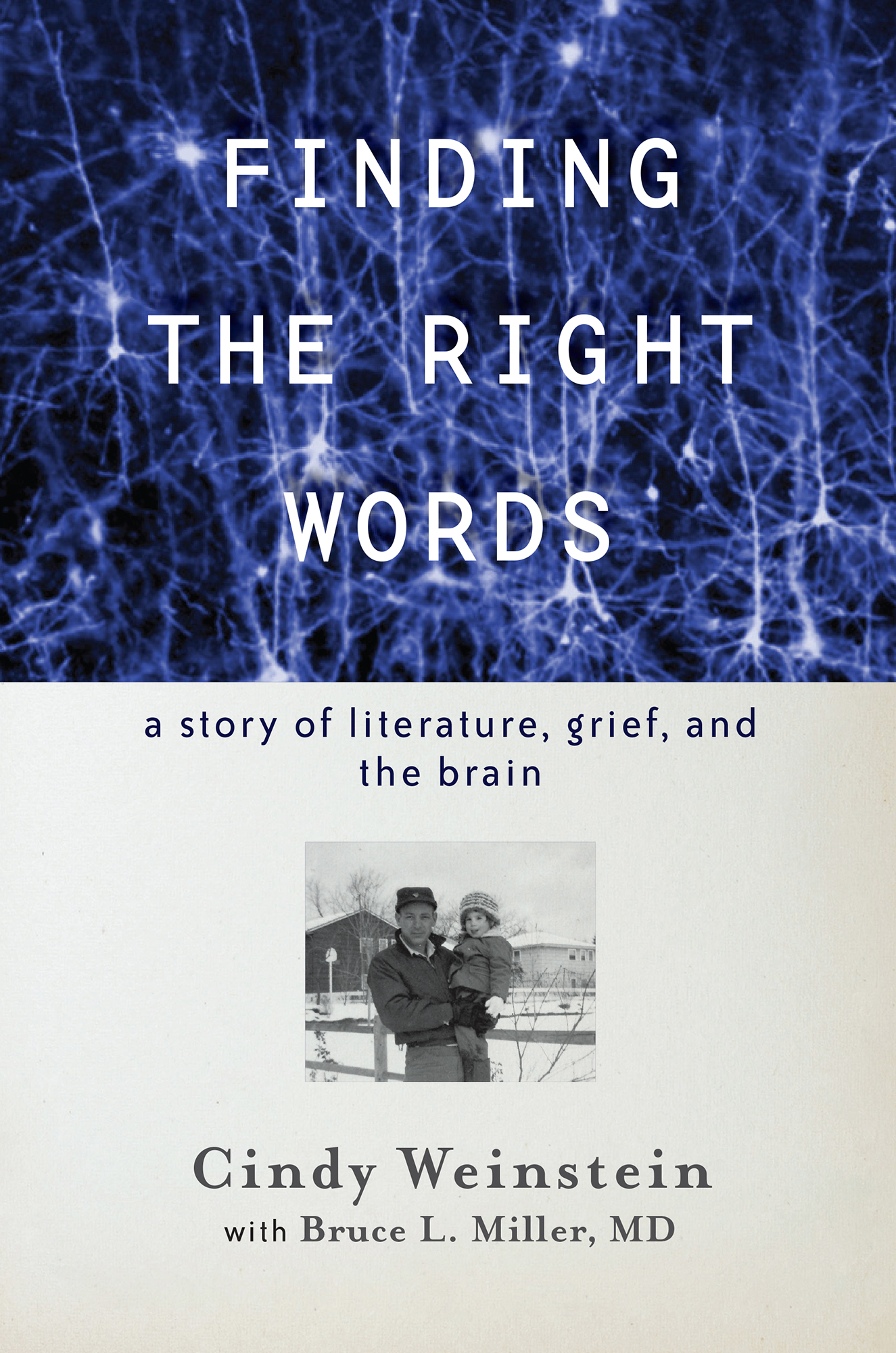
FINDING THE RIGHT WORDS

a story of literature, grief, and the brain
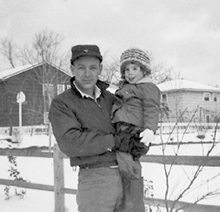
Cindy Weinstein
With Bruce L. Miller, MD

Johns Hopkins University Press | BALTIMORE
2021 Johns Hopkins University Press
All rights reserved. Published 2021
Printed in the United States of America on acid-free paper
2 4 6 8 9 7 5 3 1
Johns Hopkins University Press
2715 North Charles Street
Baltimore, Maryland 21218-4363
www.press.jhu.edu
Library of Congress Cataloging-in-Publication Data
Names: Weinstein, Cindy, author. | Miller, Bruce L., 1949 author.
Title: Finding the right words : a story of literature, grief, and the brain / Cindy Weinstein, with Bruce L. Miller, MD.
Description: Baltimore : Johns Hopkins University Press, 2021. | Includes bibliographical references and index.
Identifiers: LCCN 2020036271 | ISBN 9781421441269 (hardcover) | ISBN 9781421441276 (ebook)
Subjects: LCSH: Alzheimers diseasePatientsBiography. | Parent and childRelationship
Classification: LCC RC523.2 .W44 2021 | DDC 616.8/3110092 [B]dc23
LC record available at https://lccn.loc.gov/2020036271
A catalog record for this book is available from the British Library.
Title page images: Layer 5 pyramidal neurons of the human cerebral cortex stained using the rapid Golgi silver impregnation method, courtesy of William W. Seeley, MD (top); Jerry and Cindy, courtesy of the author (bottom).
All images are courtesy of the author unless otherwise noted.
Special discounts are available for bulk purchases of this book. For more information, please contact Special Sales at .
Johns Hopkins University Press uses environmentally friendly book materials, including recycled text paper that is composed of at least 30 percent post-consumer waste, whenever possible.

Cindy and Bruces travels through North America. Light gray footsteps are Cindys. Dark gray footsteps are Bruces. Gray lines are Cindys visits to her father, Jerry.
Drawing by Caroline Prioleau

Key parts of the cerebral cortex.
Drawing by Caroline Prioleau
You are about to read a sad story of a wonderful person, a father, whose cruel death by early-onset Alzheimers disease took his daughter decades to recover from. But you are also going to read a story, written with humor whenever possible, about finding solace through learning and sharing words. These words come from several worlds: neurology, literature, popular culture from the 1960s to the present, and a Jewish household where Yiddish was sprinkled in conversation like salt on brisket. We have tried to explain these terms as they arise in the chapters, but further definition seemed necessary, especially in the case of the medical vocabulary (and the Yiddish). Therefore, we have included a glossary at the end of the book. And although this book isnt meant to be a comprehensive discussion of dementia or a complete how-to guide for caregivers, we have also included images and tables that are meant to introduce readers to fundamental aspects of dementia, so that the first appointment with the neurologist (or general practitioner) isnt the first time they see these images or hear these words.
Further explanation of literary references also seemed necessary. But unlike a neurological word that can be defined (a neuron, for example, is a nerve cell that transmits information), a book really cant be. Take Moby-Dick. Novel written by Herman Melville. 1851. One-legged captain tries to kill whale that bit off his leg. See what we mean? So, we have assembled the references to novels, poems, short stories, plays, neurological writings, etc. in a suggested readings section that follows the glossary. We hope that the literature mentioned, and the context provided in the chapters, makes you want to read (or reread) the books that have meant so much to us. Those works of the literary imagination, combined with the knowledge generated by the scientific imagination, have helped us find the right words. We hope they help you find yours.
- Traditionally, a newly discovered disease is named in honor of the person recognized as the first person to describe it (for example, Alzheimers disease). This practice leads to some ambiguity though (does the person have the disease or is the disease named for the person?). More modern usage tends to keep the name but drop the possessive form (Alzheimers disease becomes Alzheimer disease). In this book, we have used the traditional possessive form, as this is how the diagnosis was delivered at the time.
I am fifty-eight years old, the age my father was when my mother called to tell me he had Alzheimers disease. I am also in Berkeley, the same city I was in when I was twenty-five and got that phone call. A part of me has been frozen in that moment, even though over thirty years have intervened, during which time I got married, had two children, worked at Caltech (the California Institute of Technology), wrote some books, and went to my fathers funeral.
I have returned to Berkeley to mourn the loss of my fatherin Judaism, this is called sitting shivamore than twenty years after he died. To say goodbye to him in the way I know best, which is to study, think, and write a book. I have always known that, unlike many memoirs about Alzheimers disease, the book I would write about my father was one I wouldnt write alone. Having spent thirty years studying literature, I know that only someone who knows a field inside-out can explain its complexities in a way that can be understood by all readers. One year at the Memory and Aging Center (also known as the MAC) at the University of California, San Francisco (UCSF), learning about neurology would give me some familiarity with the science, but not nearly enough to write about it with the kind of expertise and clarity I believe is most helpful. Furthermore, I wanted a coauthor who could not only explain Alzheimers disease but also share his knowledge with families dealing with other kinds of neurological diseases, such as frontotemporal dementia (FTD) or Lewy body dementia. Last, the physicians who accompanied my family through the years of my fathers illness werent much help. On the one hand, it was the 1980s, and they didnt know much about the disease; on the other hand, they had little interest in hearing how our family was managing. I wanted to write this book with a leading neurologist at the cutting-edge of scientific research, so he could explain to me what was happening to my father thirty years ago. That he would listen and care so much was icing on the cake.
Thus, I asked Dr. Bruce Miller, founder of the MAC, to write a book with me about dementia so I could tell the story of my fathers Alzheimers disease, and he could explain the science of dementia to people who may not have a degree in neurology. The argument of the book is implicit in its coauthorship: that an interdisciplinary approach to Alzheimers disease and other dementias is the best way to help families dealing with a life-changing diagnosis. Families are best cared for by sharing with them the emotional challenges as well as the scientific ones. This is best done by integrating the perspectives of a family member and a physician. Through this process, the family member gains knowledge about the neurology, thereby becoming more informed, confident in advocacy and caregiving, and the doctor learns about the familys experiences, thereby becoming more empathic, better able to understand their emotional needs.
Font size:
Interval:
Bookmark:
Similar books «Finding the Right Words»
Look at similar books to Finding the Right Words. We have selected literature similar in name and meaning in the hope of providing readers with more options to find new, interesting, not yet read works.
Discussion, reviews of the book Finding the Right Words and just readers' own opinions. Leave your comments, write what you think about the work, its meaning or the main characters. Specify what exactly you liked and what you didn't like, and why you think so.

